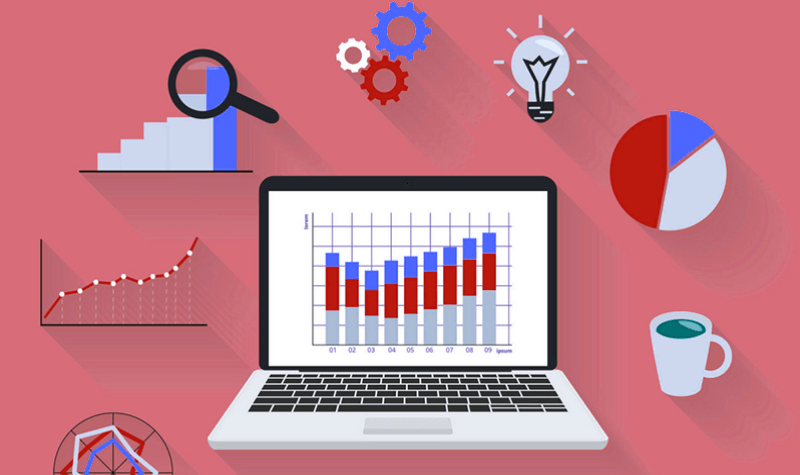In today’s fast-paced business environment, where customer interactions span multiple channels and touchpoints, the need for an efficient Customer Relationship Management (CRM) system has never been more critical.
A CRM tool not only streamlines processes and enhances data management but also provides valuable insights that can drive strategic decisions. By centralizing customer information, businesses can improve customer service, personalize marketing efforts, and boost sales productivity.
In an age where customer experience is paramount, companies that fail to leverage a CRM risk falling behind. This article explores why every business, regardless of size or industry, should consider implementing a CRM system to stay competitive and thrive.
Why Every Business Needs a CRM Today
In today’s highly competitive and customer-centric market, every business needs a Customer Relationship Management (CRM) system to thrive. A CRM helps companies manage their interactions with current and potential customers, streamline processes, and enhance customer satisfaction.
By centralizing customer data, businesses can gain valuable insights, improve sales efficiency, and foster stronger, more lasting relationships with their clients. Whether you are a small startup or a large enterprise, a CRM is an essential tool that can significantly boost your bottom line and ensure long-term success.
Improved Customer Insights and Personalization
A CRM system allows businesses to collect and analyze vast amounts of customer data, providing in-depth insights into customer preferences, behavior, and feedback.
This information can be used to tailor marketing efforts, product recommendations, and customer service interactions, leading to higher customer satisfaction and increased loyalty. Personalized experiences can set your business apart from competitors and drive more sales.
Streamlined Sales Processes and Enhanced Productivity
One of the key benefits of a CRM is its ability to streamline sales processes. By automating tasks such as lead management, follow-up communications, and sales tracking, a CRM can significantly increase productivity and reduce the risk of human error.
Sales teams can focus more on building relationships and closing deals, while the CRM handles the administrative work. This leads to a more efficient sales cycle and higher conversion rates.
Enhanced Customer Service and Support
Effective customer service is crucial for retaining customers and building a positive brand reputation. A CRM system provides a centralized database of customer interactions, allowing support teams to quickly access important information and provide personalized assistance.
This can lead to faster resolution of issues and a more positive customer experience. Additionally, CRM tools can help identify common issues and areas for improvement, enabling businesses to proactively address customer concerns and enhance overall service quality.
| Benefit | Description |
|---|---|
| Improved Customer Insights | CRM systems collect and analyze customer data to provide deep insights, enabling personalized interactions and higher customer satisfaction. |
| Streamlined Sales Processes | Automation of tasks like lead management and sales tracking increases productivity and reduces errors, leading to a more efficient sales cycle. |
| Enhanced Customer Service | Centralized customer data allows for quicker and more personalized support, improving customer retention and brand reputation. |
Why does a business need CRM?
A business needs a Customer Relationship Management (CRM) system for several critical reasons. First, CRMs help in streamlining and automating customer interactions, making it easier to manage and track communication with clients.
This ensures that no customer is overlooked and that all interactions are documented and analyzed for better service delivery. Second, CRMs provide valuable insights into customer behavior and preferences through data analytics, enabling businesses to make informed decisions and tailor their offerings to meet customer needs more effectively.
Third, CRMs enhance collaboration among different departments within a company by centralizing customer data, allowing teams to access and share information seamlessly. This leads to more coordinated efforts and improved customer satisfaction. Finally, CRMs can significantly improve sales performance by providing sales teams with the tools they need to manage leads, track sales pipelines, and close deals more efficiently.
Enhanced Customer Service
A CRM system enhances customer service by providing a centralized platform to manage all customer interactions. This ensures that every customer query or issue is tracked and resolved in a timely manner.
By having a comprehensive view of customer history, preferences, and past interactions, businesses can provide more personalized and efficient service. For example:
- Agents can quickly access customer information, reducing resolution times.
- Automated follow-ups and reminders ensure that no customer is left unattended.
- Data analytics help identify areas for improvement, leading to better service practices.
Improved Sales Performance
CRMs improve sales performance by equipping sales teams with the tools and data they need to be more effective. This includes features like lead management, sales pipeline tracking, and performance analytics.
By centralizing customer data, sales teams can focus on the most promising leads and tailor their approaches to individual customer needs. For instance:
- Lead scoring helps prioritize the most valuable leads.
- Sales pipelines provide a clear overview of the sales process, making it easier to identify bottlenecks.
- Performance analytics offer insights into what strategies are working and which need adjustment.
Data-Driven Decision Making
One of the key benefits of a CRM system is its ability to provide valuable data that can inform business decisions. By collecting and analyzing customer data, businesses can gain insights into customer behavior, market trends, and internal processes. This data-driven approach helps in making more informed and strategic decisions. For example:
- Customer behavior analysis helps in developing targeted marketing campaigns.
- Market trend data can guide product development and innovation efforts.
- Process analytics can identify inefficiencies and areas for optimization.
Why are CRM systems being extensively used today?

CRM systems are being extensively used today due to their ability to streamline business processes, enhance customer relationships, and provide valuable insights. These systems help businesses manage interactions with current and potential customers, automate sales processes, and improve overall operational efficiency.
By centralizing customer data, CRM systems enable companies to make data-driven decisions, personalize customer experiences, and ultimately drive revenue growth.
Enhanced Customer Service and Satisfaction
CRM systems significantly improve customer service by providing a unified view of customer interactions and history. This allows customer service representatives to quickly access relevant information, resolve issues more efficiently, and provide a more personalized experience.
Additionally, CRM systems can automate routine tasks, such as follow-up emails and appointment reminders, freeing up agents to focus on more complex customer needs.
- Unified customer profiles for quick access to information
- Automated follow-up and reminders to keep customers engaged
- Personalized interactions to enhance customer satisfaction
Increased Sales Efficiency and Effectiveness
Sales teams benefit greatly from CRM systems as they can track leads, manage pipelines, and forecast sales more accurately. These systems provide tools for lead scoring, opportunity tracking, and performance analytics, which help sales representatives prioritize their efforts and close deals more effectively.
By automating repetitive tasks, such as data entry and report generation, CRM systems also reduce administrative burdens and allow sales teams to focus on building customer relationships.
- Lead scoring and opportunity tracking to prioritize sales efforts
- Accurate sales forecasting to better manage business expectations
- Automated tasks to reduce administrative work for sales teams
Data-Driven Decision Making
CRM systems generate a wealth of data that can be analyzed to gain insights into customer behaviors, preferences, and trends. This data is invaluable for making informed business decisions, optimizing marketing campaigns, and identifying new opportunities.
Advanced analytics and reporting features within CRM systems allow businesses to track key performance indicators (KPIs), measure the effectiveness of marketing efforts, and adjust strategies in real-time based on data-driven insights.
- Comprehensive data collection and analysis for better business insights
- Real-time tracking of KPIs to measure performance
- Optimized marketing campaigns based on customer data
Is CRM still relevant today?
Customer Relationship Management (CRM) systems have been a staple in the business world for decades, and their relevance has only grown with the digital transformation. CRM technology continues to offer significant benefits, such as improved customer engagement, enhanced data analytics, and streamlined operations.
Modern CRMs are designed to integrate seamlessly with various business tools and platforms, providing a comprehensive view of customer interactions across multiple channels. This integration is crucial in an era where customer expectations are higher than ever and businesses need to stay agile to remain competitive.
The Evolution of CRM Technology
The evolution of CRM technology has been transformative. Initially, CRMs were primarily used for managing customer contacts and sales interactions. However, they have evolved into sophisticated platforms that offer a wide range of functionalities.
Today’s CRMs are equipped with advanced analytics, artificial intelligence (AI), and machine learning capabilities. These features enable businesses to gain deeper insights into customer behavior, predict future trends, and personalize interactions. For example:
- Advanced analytics provide real-time insights into customer preferences and purchasing patterns.
- AI-powered chatbots can handle customer inquiries efficiently, improving response times and customer satisfaction.
- Machine learning algorithms can segment customers based on various criteria, allowing for more targeted marketing campaigns.
Benefits of CRM in the Digital Age
In the digital age, CRM systems play a pivotal role in optimizing customer experiences and driving business growth. They help companies build and maintain strong relationships with customers by centralizing customer data and facilitating consistent communication.
The benefits of CRM in the digital age include:
- Enhanced customer engagement through personalized interactions and tailored content.
- Improved operational efficiency by automating routine tasks and streamlining workflows.
- Increased customer retention and loyalty by providing superior service and support.
CRM’s Role in Data-Driven Decision Making
One of the most significant advantages of CRM systems is their ability to support data-driven decision making. By collecting and analyzing vast amounts of customer data, businesses can make informed decisions that enhance customer satisfaction and drive revenue growth. The role of CRM in data-driven decision making includes:
- Providing actionable insights through comprehensive data analysis and reporting tools.
- Enabling businesses to identify and capitalize on new market opportunities.
- Helping companies optimize marketing strategies by understanding customer preferences and behaviors.
Why are so many companies and organizations developing CRM systems today?
The rise in the development of CRM (Customer Relationship Management) systems by companies and organizations today can be attributed to several key factors:
Enhancing Customer Experience
One of the primary reasons for the surge in CRM system development is the growing importance of customer experience. In today’s highly competitive market, companies need to ensure that their customers have positive interactions at every touchpoint.
CRM systems help in this regard by providing a comprehensive view of customer data, enabling personalized communication and service. This leads to higher customer satisfaction and loyalty.
- Personalized Communication: CRM systems allow businesses to tailor messages and offers based on customer preferences and behavior.
- Efficient Service: By centralizing customer data, CRM systems help in providing quick and effective resolutions to customer issues.
- Consistent Experience: CRM systems ensure that all customer interactions are consistent across different channels and touchpoints.
Improving Operational Efficiency
Another significant factor is the improvement in operational efficiency that CRM systems offer. These systems streamline various business processes, from sales and marketing to customer service and support.
By automating routine tasks and providing real-time insights, CRM systems help organizations optimize resource allocation and reduce operational costs.
- Automation of Tasks: CRM systems automate repetitive tasks such as data entry and follow-up messages, freeing up employees to focus on more strategic activities.
- Real-Time Insights: CRM systems provide real-time data and analytics, enabling companies to make informed decisions quickly.
- Resource Optimization: By centralizing data and processes, CRM systems help in better resource management and cost reduction.
Competitive Advantage
In an increasingly digital and data-driven world, having a robust CRM system can provide a significant competitive advantage. Companies that effectively leverage CRM systems can gain a deeper understanding of their customers, identify market trends, and respond to changes more quickly.
This not only helps in retaining existing customers but also in acquiring new ones.
- Deeper Customer Insights: CRM systems collect and analyze vast amounts of customer data, providing valuable insights into customer behavior and preferences.
- Agile Response: With real-time data and analytics, companies can quickly adapt to market changes and customer needs.
- Market Differentiation: CRM systems enable companies to create unique and personalized customer experiences, setting them apart from competitors.
Frequently Asked Questions
What is a CRM and why is it essential for modern businesses?
A CRM, or Customer Relationship Management system, is a tool that helps businesses manage interactions with current and potential customers. It’s essential today because it centralizes customer data, streamlines processes, and provides valuable insights to enhance customer satisfaction and drive revenue growth.
How does a CRM improve customer interactions?
A CRM improves customer interactions by providing a unified view of customer data, enabling personalized communication. It tracks customer preferences, purchase history, and interactions, allowing businesses to respond quickly and effectively to customer needs, leading to better engagement and higher customer loyalty.
Can a CRM help in scaling a business?
Yes, a CRM can help in scaling a business by automating routine tasks, such as lead management and customer support, freeing up staff to focus on more strategic activities. It also provides actionable insights through analytics, helping businesses make informed decisions to drive growth and efficiency.
What are the key features to look for in a CRM system?
Key features to look for in a CRM system include robust customer data management, automation of sales and marketing processes, comprehensive analytics and reporting, mobile access, and integration capabilities with other business tools. These features ensure that the CRM can effectively support and enhance all aspects of customer management.


